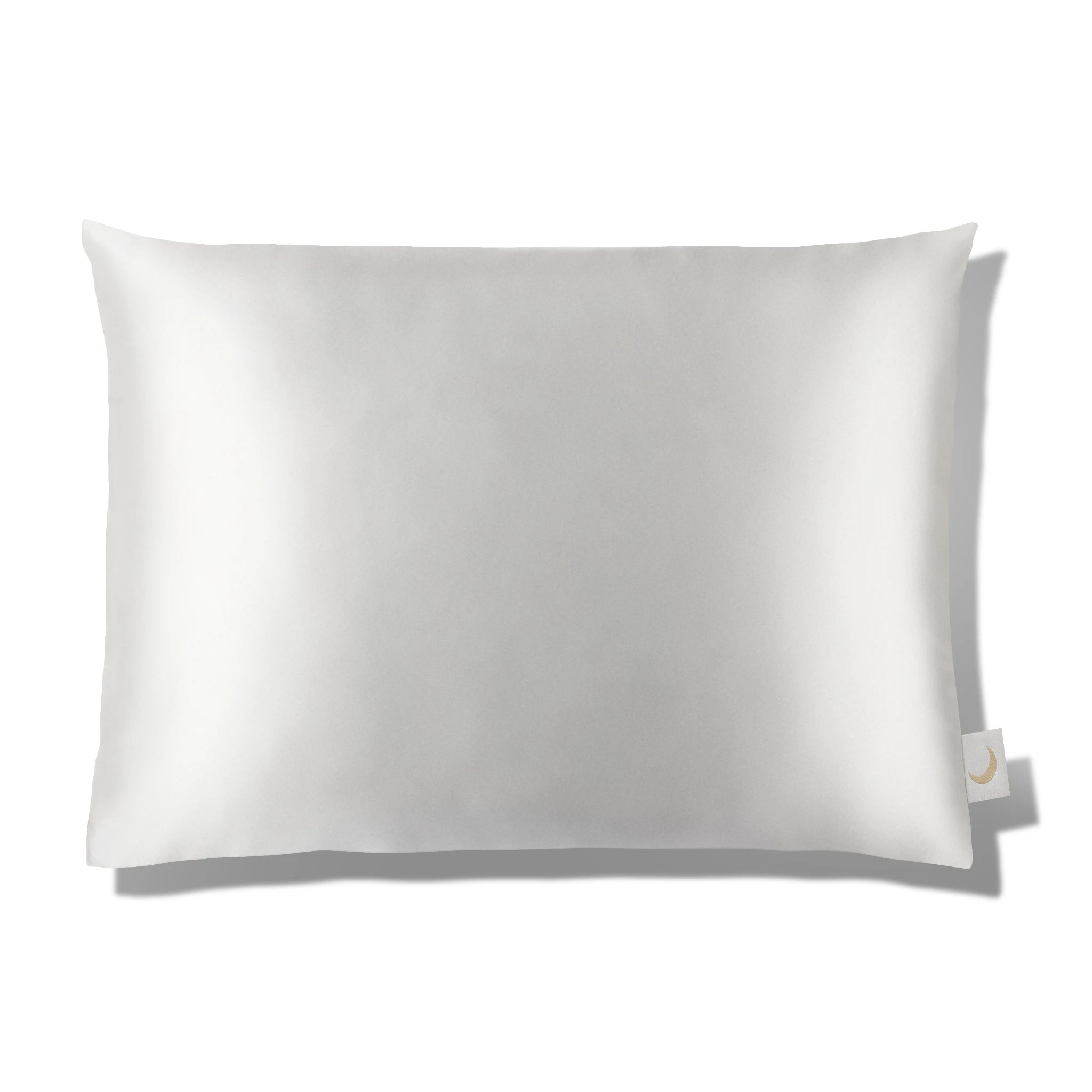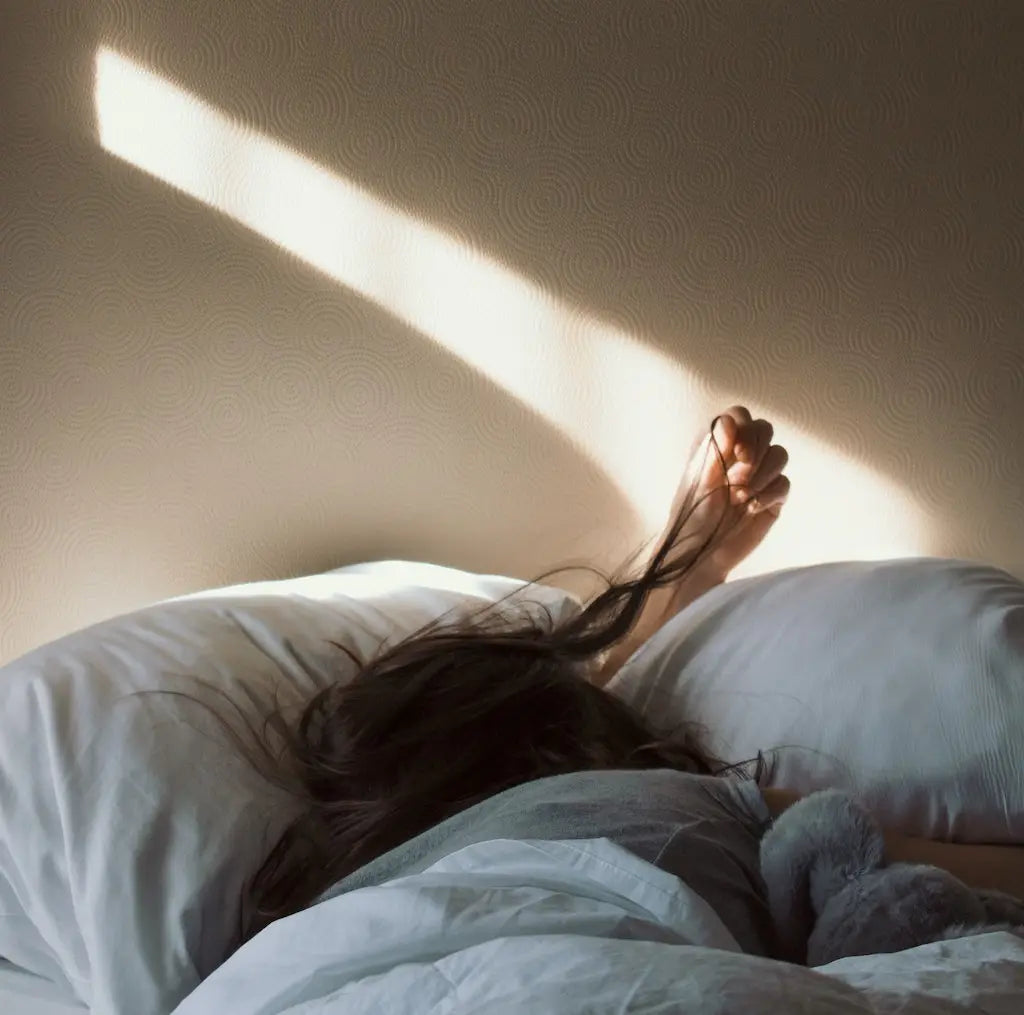Have you ever found yourself tossing and turning in bed, unable to fall asleep no matter how tired you are or how much sleep you had before? Or maybe you wake up in the middle of the night and can't seem to get back to sleep? You're not alone. According to the National Sleep Foundation, 30 to 40% of adults experience insomnia at some point in their lives. In this article, we'll explore the common causes of insomnia and provide tips to help you improve your sleep.
Trouble sleeping: what is insomnia?
Insomnia is a sleep disorder that is characterized by difficulty falling or staying asleep, trouble sleeping or falling asleep again, or waking up too early and being unable to fall back asleep. Insomnia can be acute, lasting a few days or weeks, or chronic, lasting for months or even years.
Acute insomnia is often triggered by stress, such as a new job or a major life change, or by environmental factors that disrupt sleep itself, such as noise or an uncomfortable sleeping environment. Chronic insomnia, on the other hand, is often the result of underlying health conditions, such as anxiety, depression, or chronic pain.
Can't fall asleep? 7 common causes
There are many factors that can contribute to insomnia. Here are the 7 most common ones:
-
Stress: Stress is one of the most common causes of acute insomnia. When you're stressed, your body releases hormones that can interfere with your sleep, making it difficult to fall asleep or stay asleep.
-
Anxiety: Anxiety can also cause trouble falling asleep, causing you to feel restless and on edge, even when you're trying to relax and fall asleep.
-
Depression: Depression can disrupt your sleep patterns, making it difficult to fall asleep, stay asleep, or wake up feeling rested.
-
Chronic Pain: Chronic pain, such as back pain or arthritis, can make it difficult to find a comfortable sleeping position, leading to insomnia and disrupt sleep.
-
Medical Conditions: Certain medical conditions, such as asthma, acid reflux, and Parkinson's disease, can interfere with your sleep.
-
Medications: Certain medications, such as antidepressants and pain relievers, can interfere with your sleep.
-
Lifestyle Factors: Poor sleep habits, such as staying up late, watching TV or using electronic devices in bed, can also contribute to insomnia.
Tips to improve sleep and get a good night's rest
If you're struggling with insomnia, there are several things you can do to improve your sleep and get the sleep you deserve:
-
Stick to a Sleep Schedule: Try to go to bed and wake up at the same time every day, even on weekends. This will help regulate your body's internal clock and improve the quality of your sleep. Limit naps. Write a sleep diary to help find your internal clock.
-
Create a Better Sleep Environment: Make sure your bedroom is quiet, the room is cool, and dark (use a black out sleep mask) as the body temperature has to drop. Use comfortable pillows and bedding, and remove any electronic devices that emit light or noise. Try a short warm bath to wind down before bedtime. If you have sleepless nights with a bed partner, try to sleep without one.
-
Limit Your Exposure to Screens: The blue light emitted by electronic devices can interfere with your sleep by suppressing the production of melatonin, a hormone that regulates sleep. Try to avoid using electronic devices with blue light for at least an hour before bedtime.
-
Avoid Stimulants: too much caffeine, nicotine, and alcohol in the hours before bedtime can interfere with your sleep. If you want to improve sleep, try not to drink alcohol in general.
-
When you eat matters: Avoid large meals and especially spicy foods and beverages before bedtime.
-
Exercise Regularly: Regular exercise can help improve the quality of your sleep by reducing stress and anxiety and promoting relaxation.
-
Practice Relaxation Techniques: Mindfulness meditation, deep breathing, and progressive muscle relaxation can help enter relaxing brain wave frequencies and thus promote relaxation and improve your sleep.
-
Lying Awake? Get out of bed, listen to soft music, read and distract yourself.
-
Get Help if You Need it: If your insomnia is chronic or is interfering with your daily life, talk to a sleep specialist, like a healthcare provider or a mental health professional. They may recommend medications or other therapies to help improve your sleep.
Read on how to biohack sleep and how to zen your bedroom with feng shui.
Sleep disorders that prevent a good night's rest
Sleep disorders are a group of conditions that affect the quality, timing, and duration of sleep. There are many different types of sleep disorders, and they can affect people of all ages and backgrounds. Some of the most common sleep disorders include sleep difficulties:
-
Insomnia: This is a sleep disorder characterized by difficulty falling asleep or staying asleep. Insomnia can be caused by a variety of factors, including stress, anxiety, depression, and certain medications.
-
Sleep apnea: This is a sleep disorder characterized by brief interruptions in breathing during sleep. It occurs when the airway becomes partially or completely blocked, leading to decreased oxygen levels in the blood and frequent awakenings throughout the night.
-
Restless legs syndrome: This is a sleep disorder characterized by uncomfortable sensations in the legs that are relieved by movement. People with restless legs syndrome often have difficulty falling asleep or staying asleep.
-
Narcolepsy: This is a sleep disorder characterized by excessive daytime sleepiness and sudden sleep attacks. Narcolepsy is caused by a dysfunction in the brain's ability to regulate sleep-wake cycles.
-
Parasomnias: This is a group of sleep disorders characterized by abnormal behaviors that occur during sleep. Examples of parasomnias include sleepwalking, night terrors, and REM sleep behavior disorder.
-
Disorders of the circadian rhythms: This is a group of sleep disorders characterized by disruptions in the body's natural sleep-wake cycle. Examples of circadian rhythms disorders include jet lag and shift work sleep disorder.
Sleep disorders can have a significant impact on a person's overall health, immune system and well-being. If you are experiencing symptoms of a sleep disorder, it is important to talk to your doctor or talk to your healthcare provider to determine the underlying cause of sleepness nights and develop an appropriate treatment plan.
Sleep apnea - these common culprits might be keeping you up
Sleep apnea is a common sleep disorder characterized by brief interruptions in breathing during sleep. It occurs when the airway becomes partially or completely blocked, leading to decreased oxygen levels in the blood and frequent awakenings throughout and therefore preventing a good night's sleep.
Common symptoms of sleep apnea include loud snoring, gasping or choking during sleep, excessive daytime sleepiness, difficulty concentrating, and morning headaches. Sleep apnea is a serious condition that can increase the risk of high blood pressure, heart attack, stroke, and other health problems if left untreated. Treatment options for sleep loss can include lifestyle changes (such as weight loss and avoiding alcohol and sedatives), continuous positive airway pressure (CPAP) therapy, and surgery.
Understanding insomnia - what's the science behind insomnia?
The following studies have contributed significantly to our understanding of the causes, consequences, and treatments of insomnia. They have helped identify the psychological, behavioral, and physiological factors that contribute to sleep difficulties, and have paved the way for the development of effective interventions for insomnia. These studies have been cited extensively in the literature on insomnia, and have informed the guidelines and recommendations for the diagnosis and treatment of this common sleep disorder. Here are the key findings:
Psychological and behavioral connections of insomnia
A comprehensive review of the literature on the psychological and behavioral treatments of insomnia [1] found that cognitive-behavioral therapy (CBT) is the most effective treatment for chronic insomnia, and that other psychological and behavioral treatments can also be effective. They also noted that sleeping pills can be helpful in some sleep medicine the short term, but that long-term use of many prescription drugs and medication is generally not recommended.
Depressive and anxiety disorders and insomnia
Another study examined the relationship between chronic insomnia and depressive and anxiety disorders [2]. The authors found that chronic insomnia is often comorbid with these disorders, and that insomnia often precedes the onset of these disorders. They suggested that the treatment of insomnia may be an important component of the treatment of depressive and anxiety disorders.
Subjective measures of sleep quality
One study [3] compared objective measures of sleep (e.g., polysomnography) with subjective measures of sleep (e.g., self-report) back to sleep, in individuals with insomnia. The authors found that the objective and subjective measures of sleep were often inconsistent, and that subjective measures tended to overestimate the severity of sleep problems. They suggested that objective measures of sleep should be used to diagnose and assess the severity of insomnia and that we might not sleep as bad as we think we do.
The Pittsburgh Sleep Quality Index
A team of researchers developed and validated the Pittsburgh Sleep Quality Index (PSQI), a self-report questionnaire that assesses subjective sleep quality over the previous month [4]. The authors found that the PSQI had good reliability and validity, and that it was sensitive to changes in sleep quality over time. They suggested that the PSQI could be a useful tool for assessing sleep quality in clinical and research settings.
Beliefs and attitudes about sleep
Another study examined the beliefs and attitudes about sleep among older adults with and without insomnia complaints [5]. The authors found that individuals with insomnia tended to have more negative beliefs and attitudes about sleep than those without insomnia. They suggested that addressing these dysfunctional beliefs and attitudes better and improving sleep and environment may be an important component of the treatment of insomnia.
Daytime fatigue, irritability, difficulty concentrating, and mood disturbances
Harvard Medical School [6] has published numerous articles and studies on insomnia, including its causes, symptoms, and treatment options. Some key takeaways from their research include that the primary symptoms of insomnia are difficulty falling asleep or staying asleep. Other symptoms may include daytime fatigue, irritability, difficulty concentrating, and mood disturbances. Chronic insomnia can have a significant impact on a person's overall health and well-being. It can increase the risk of depression, anxiety, and other mental and physical health and disorders, as well as lead to impaired cognitive function and an increased risk of accidents and injuries.
Conclusion - understanding and overcoming sleep disorders
In conclusion, insomnia is a common sleep disorder that can be caused by a variety of factors that disrupt sleep itself, including stress, an anxiety disorder, depression, chronic pain, medical conditions, and poor sleep habits.
If you are experiencing difficulty falling or staying asleep, it's important to take steps to your sleep health and improve your sleep habits. By following the tips and relaxation techniques outlined above, you can create a sleep-friendly environment, establish healthy sleep habits, and reduce stress and anxiety, all of which can help improve the quality of your sleep.
Remember, getting a good night's sleep is essential for overall health and well-being. If you continue to struggle with insomnia despite making lifestyle changes, seek help from a healthcare provider. With the right treatment and support, you can overcome insomnia and get the restful, restorative sleep you need to feel your best.
Sources:





















